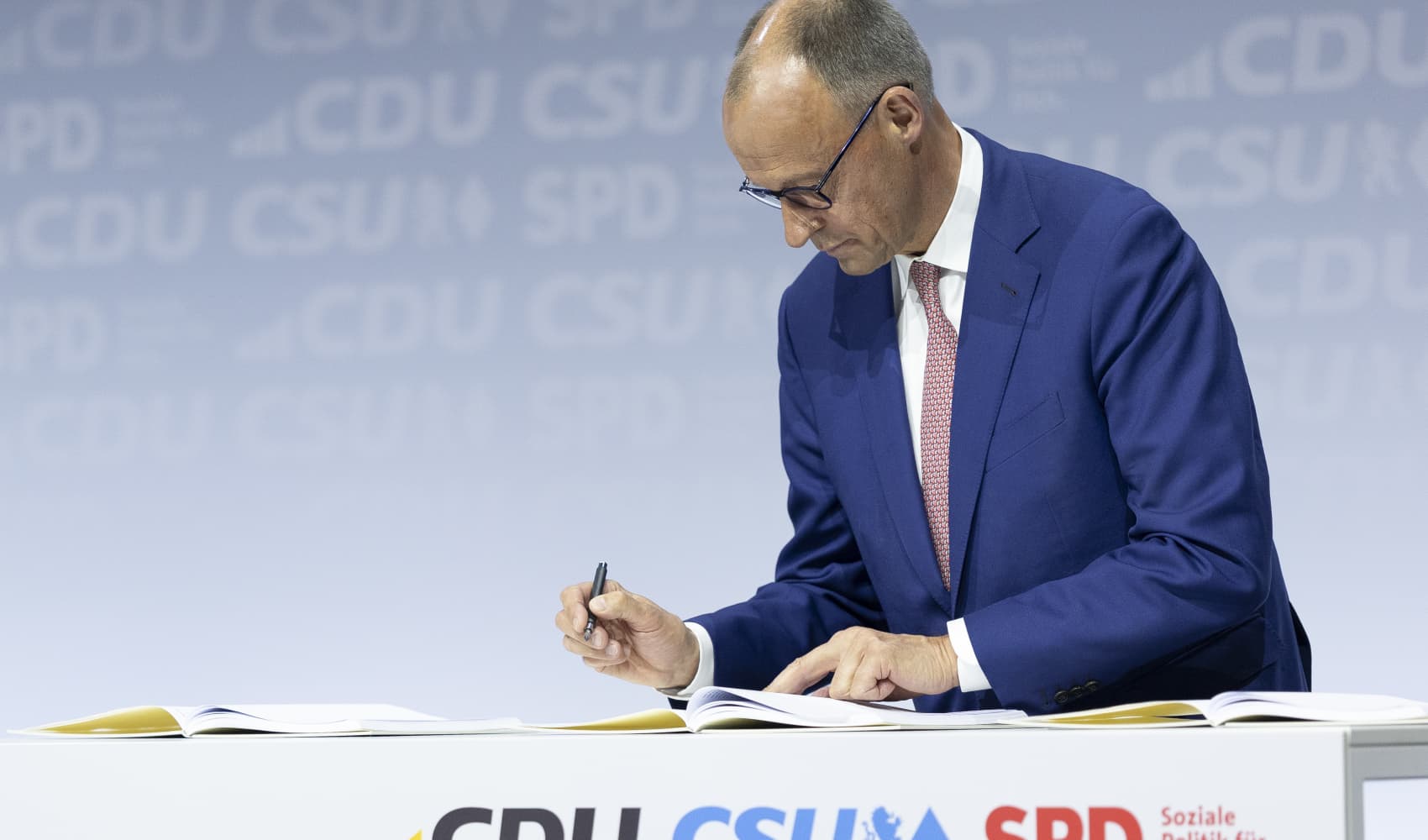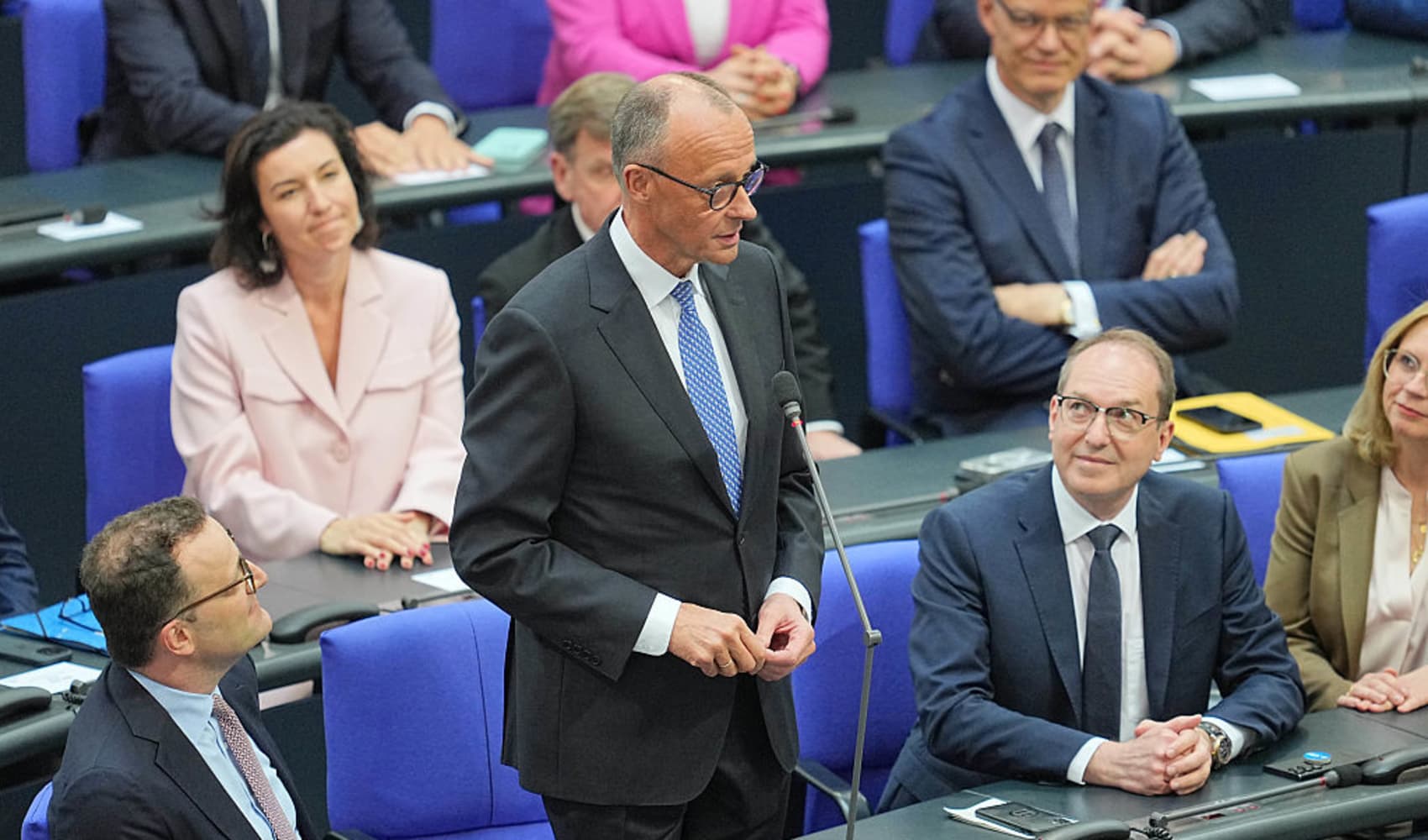German Chancellor Merz: Reforms & Investment Promises!
Germany's New Dawn: Merz Promises Reforms and Investments
Introduction: A New Chapter for Germany
The winds of change are blowing through Germany! After months of political maneuvering and negotiations, a new coalition government is taking shape, led by the incoming Chancellor Friedrich Merz. But what does this mean for Germany, and indeed, for Europe? The signing of the coalition agreement marks a pivotal moment, a turning point that promises a shift in policy and priorities. It's like watching the curtain rise on a brand new play, and everyone's eager to see what unfolds.
Friedrich Merz: The Man at the Helm
Who is Friedrich Merz?
Friedrich Merz, a prominent figure from the center-right Christian Democratic Union (CDU), is poised to lead Germany into a new era. He’s not a newcomer to the political stage, having served in various roles over the years. Think of him as a seasoned captain taking the helm of a ship, navigating through potentially turbulent waters.
Merz's Vision: Reforms and Investments
Merz has made it clear: his focus is on reforms and investments. But what kind of reforms are we talking about? And where will the investments be directed? These are the questions on everyone's minds. "Tomorrow you will get ... a government that is determined to move Germany forwards with reforms and investment," Merz declared, setting the stage for what's to come.
The Coalition Agreement: A Blueprint for the Future
What's in the Agreement?
The coalition agreement is essentially the roadmap for the new government. It outlines the key policies, priorities, and compromises that the participating parties have agreed upon. It’s like the script of the play, revealing the plot and character development.
Centrist Parties Unite
The CDU, along with its sister party the Christian Social Union (CSU), which secured the largest share of votes in the February election, has formed a coalition with other centrist parties. This alliance signifies a broad consensus, but also potential challenges in balancing different viewpoints. After all, can everyone agree on everything? Probably not!
Key Cabinet Members: The Team Behind the Chancellor
Lars Klingbeil: The Finance Minister and Vice-Chancellor
The Social Democratic Party's (SPD) Lars Klingbeil is expected to take on the crucial roles of Finance Minister and Vice-Chancellor. This is a significant appointment, as Klingbeil will be responsible for managing Germany's finances and playing a key role in shaping economic policy. He's like the financial wizard who needs to conjure up the resources to make the reforms a reality.
Other Cabinet Appointments
The announcement of additional cabinet members further clarifies the composition of the new government. These appointments will provide insights into the specific areas of focus and expertise that the coalition is prioritizing. Keep an eye on these names – they’ll be shaping the future of Germany.
The Economic Agenda: Investing in the Future
Where Will the Investments Go?
Merz’s promise of investments raises the question: where will the money be directed? Infrastructure projects? Renewable energy initiatives? Technological advancements? The answer to this question will reveal the government's long-term economic strategy. It's like planting seeds – where you plant them determines what you'll harvest later.
Reforms for Growth
The promised reforms are likely aimed at stimulating economic growth and competitiveness. This could involve streamlining regulations, reducing bureaucracy, or incentivizing innovation. But how will these reforms impact ordinary citizens? Will they create jobs and improve living standards?
Geopolitical Implications: Germany's Role in Europe and the World
Germany's Influence on the EU
As the largest economy in Europe, Germany plays a pivotal role in the European Union. The new government's policies will inevitably have ripple effects across the continent. Will Merz's leadership strengthen or reshape the EU's direction?
International Relations
Germany's foreign policy under Merz will be closely watched by countries around the world. How will the new government approach issues such as trade, security, and climate change? Will there be a shift in Germany's alliances and partnerships?
Challenges Ahead: Navigating Uncertainties
Economic Headwinds
The global economy faces numerous challenges, including inflation, supply chain disruptions, and geopolitical tensions. The new German government will need to navigate these headwinds carefully to ensure economic stability. It's like sailing through a storm – the captain needs to keep a steady hand on the wheel.
Political Polarization
Like many countries, Germany faces increasing political polarization. The new government will need to find ways to bridge divides and foster a sense of national unity. Can they bring people together despite their differences?
The Public's Reaction: Hope and Skepticism
Initial Responses
The announcement of the coalition agreement has been met with a mix of hope and skepticism from the German public. Some are optimistic about the prospect of reforms and investments, while others are more cautious, waiting to see concrete results. As they say, "talk is cheap," so the pressure is on to deliver on promises.
Measuring Success
Ultimately, the success of the new government will be judged on its ability to improve the lives of ordinary Germans. Will they see tangible benefits in terms of jobs, income, and quality of life? The next few years will be a crucial test of Merz's leadership.
The Significance of "Center"
Defining "Centrist" in German Politics
When we say "centrist parties," what exactly does that mean in the context of German politics? It implies a moderation, a move away from extreme ideologies, and a focus on pragmatic solutions. It's like finding the sweet spot on a seesaw, where balance is achieved.
Appealing to a Broader Audience
By forming a centrist coalition, these parties are likely aiming to appeal to a broader segment of the population. Can this approach lead to greater political stability and consensus-building? Only time will tell.
A New Era Dawns
As Friedrich Merz prepares to take office, Germany stands at a crossroads. The promises of reforms and investments offer a glimpse of a brighter future, but the challenges are significant. Will Merz be able to deliver on his vision and lead Germany to a new era of prosperity and stability? The world is watching.
Conclusion: Key Takeaways
The incoming chancellorship of Friedrich Merz and the signing of the coalition agreement signal a significant shift in German politics. With promises of reforms and investments, the new government aims to revitalize the economy and strengthen Germany's role in the world. However, challenges such as economic headwinds and political polarization remain. The success of this new era will depend on the government's ability to deliver on its promises and unite the country behind a common vision.
Frequently Asked Questions
What are the main priorities of the new German government?
The new government's main priorities are economic reforms, increased investments in key sectors, and strengthening Germany's role in Europe and the world. They aim to address economic challenges and improve the lives of German citizens.
How will the coalition agreement impact German businesses?
The coalition agreement is expected to introduce reforms that could impact German businesses. These could include changes to regulations, tax policies, and investment incentives, potentially aiming to improve competitiveness and innovation.
What role will Germany play in addressing climate change under the new government?
The new government is expected to continue Germany's commitment to addressing climate change. This could involve investments in renewable energy, policies to reduce carbon emissions, and international cooperation on climate initiatives. Will they accelerate or decelerate the existing environmental policies?
How will the new government address rising inflation in Germany?
The government will likely implement measures to address inflation, potentially including fiscal policies aimed at stabilizing prices and supporting households. The specific strategies will depend on the evolving economic situation.
What is the expected impact of the new government on social welfare programs?
The impact on social welfare programs remains to be seen, but the government is likely to balance the need for fiscal responsibility with the commitment to providing a social safety net for its citizens. There might be adjustments and optimizations but significant structural changes are unlikely.



